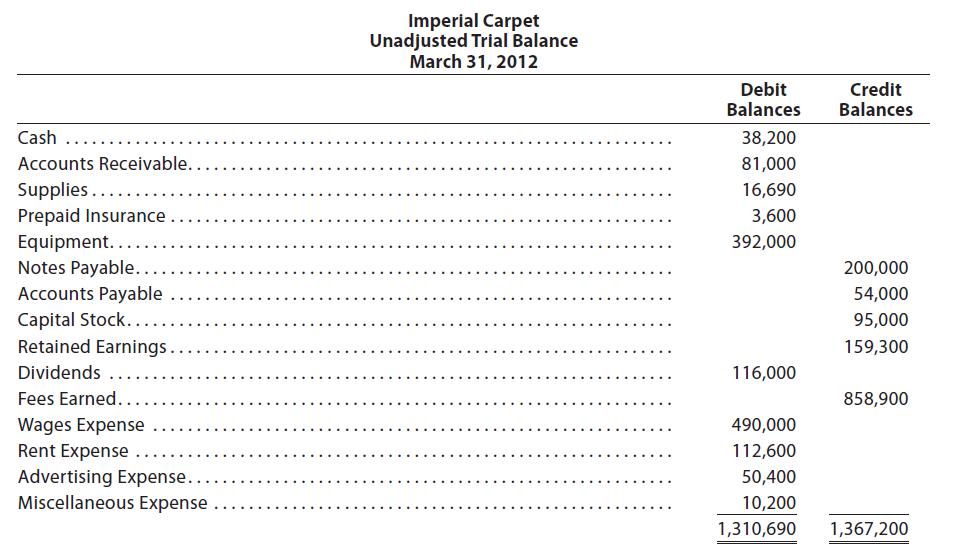Imperial Carpet has the following unadjusted trial balance as of March 31, 2012. The debit and credit
Question:

The debit and credit totals are not equal as a result of the following errors:
a. The balance of cash was understated by $12,000.
b. A cash receipt of $13,900 was posted as a debit to Cash of $19,300.
c. A debit of $15,000 to Accounts Receivable was not posted.
d. A return of $90 of defective supplies was erroneously posted as a $900 credit to Supplies.
e. An insurance policy acquired at a cost of $2,500 was posted as a credit to Prepaid Insurance.
f. The balance of Notes Payable was understated by $35,200.
g. A credit of $7,600 in Accounts Payable was overlooked when determining the balance of the account.
h. A debit of $10,000 for dividends was posted as a credit to Retained Earnings.
i. The balance of $116,200 in Rent Expense was entered as $112,600 in the trial balance.
j. Gas, Electricity, and Water Expense, with a balance of $48,300 was omitted from the trial balance.
Instructions
1. Prepare a corrected unadjusted trial balance as of March 31, 2012.
2. Does the fact that the unadjusted trial balance in (1) is balanced mean that there are no errors in the accounts? Explain.
Accounts payable (AP) are bills to be paid as part of the normal course of business.This is a standard accounting term, one of the most common liabilities, which normally appears in the balance sheet listing of liabilities. Businesses receive... Accounts Receivable
Accounts receivables are debts owed to your company, usually from sales on credit. Accounts receivable is business asset, the sum of the money owed to you by customers who haven’t paid.The standard procedure in business-to-business sales is that...
Step by Step Answer:

Financial and Managerial Accounting Using Excel for Success
ISBN: 978-1111993979
1st edition
Authors: James Reeve, Carl S. Warren, Jonathan Duchac





